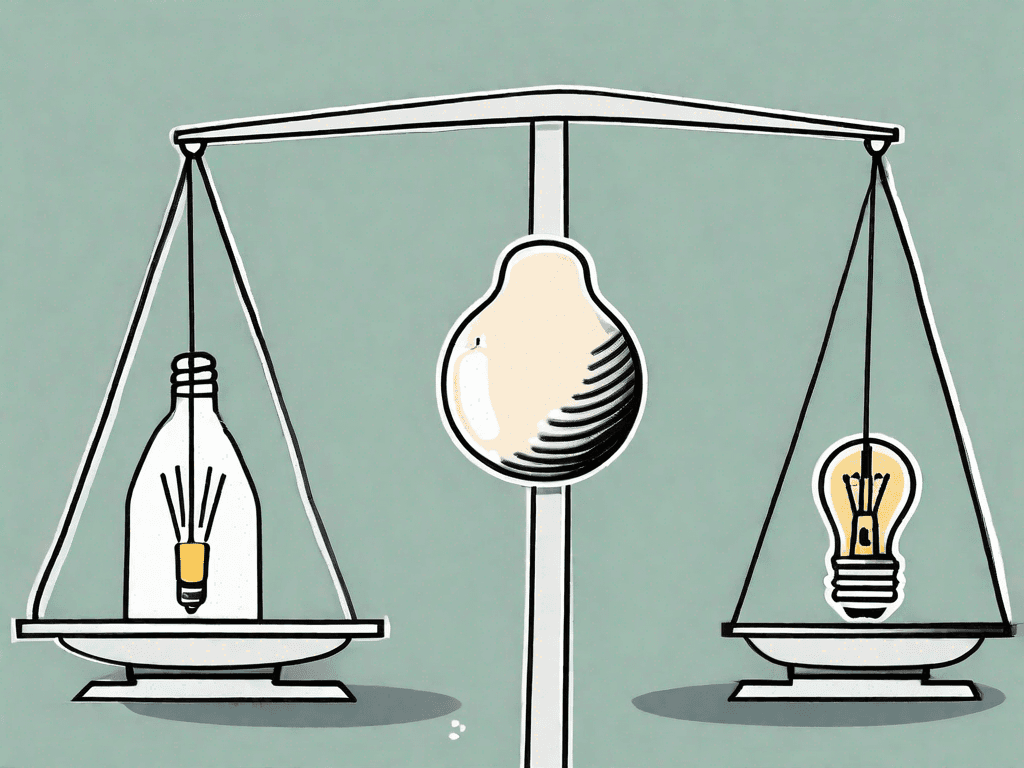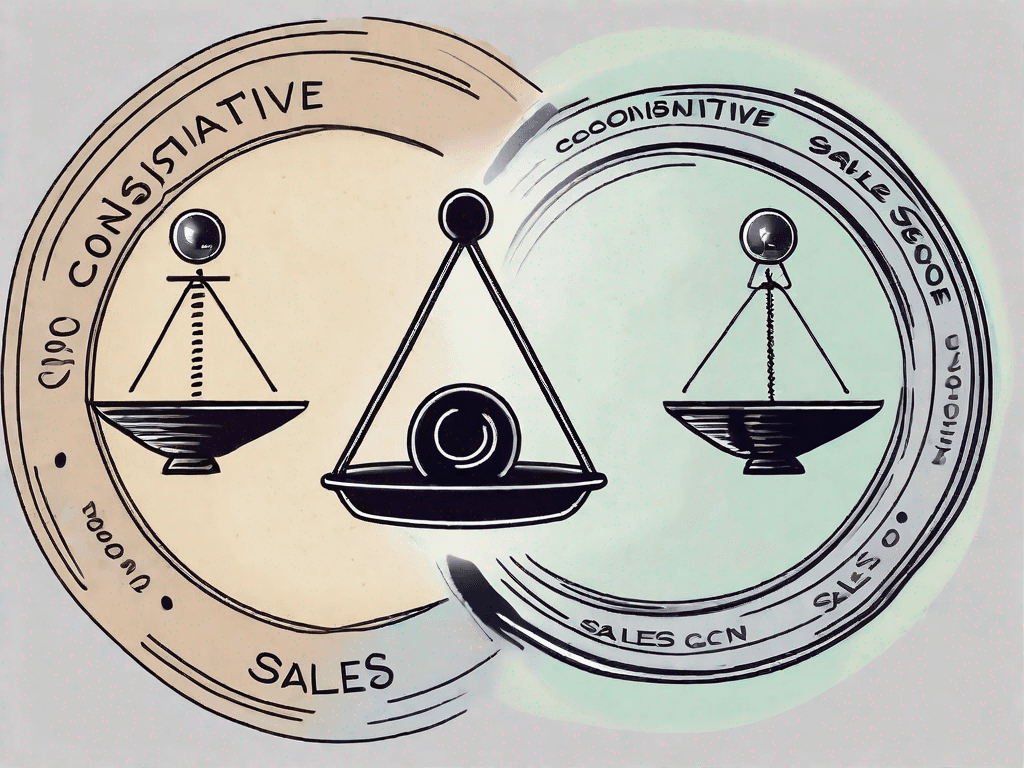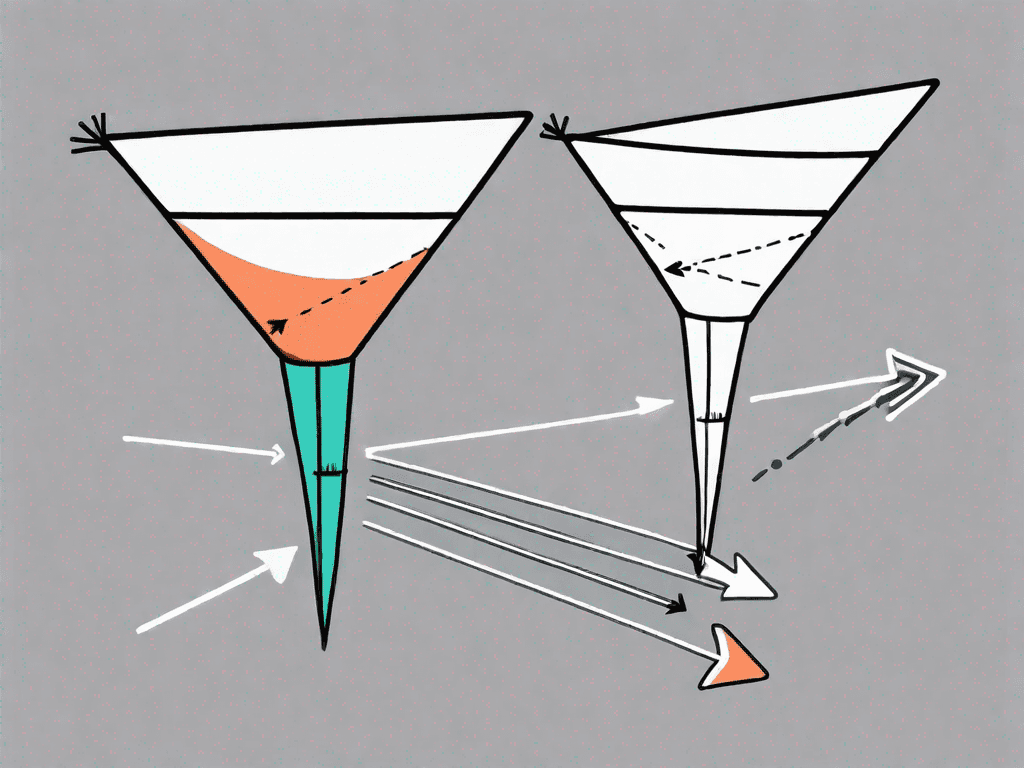
Relationship Building vs. Networking: What's the Difference?
In today's professional world, the terms relationship building and networking are often used interchangeably. But are they really the same thing? In this article, we will explore the true meanings of relationship building and networking, and discover the key differences between the two
Defining Relationship Building and Networking
Before delving into the differences, let's first establish what relationship building and networking actually mean.
Relationship building refers to the process of establishing and nurturing genuine connections with others. It involves developing a deep understanding of individuals, cultivating trust, and fostering mutual respect. It is about creating long-lasting relationships based on shared values and interests.

When it comes to relationship building, it goes beyond simply exchanging pleasantries or engaging in small talk. It requires investing time and effort into getting to know someone on a deeper level. This could mean engaging in meaningful conversations, actively listening to their thoughts and concerns, and showing genuine empathy and support.
Building relationships is not a one-time event but rather an ongoing process. It requires consistent effort to maintain and strengthen the connection over time. This can be achieved through regular communication, such as catching up over coffee or lunch, attending social events together, or even collaborating on projects or initiatives.
Furthermore, relationship building is not limited to personal connections but extends to professional relationships as well. It is crucial in the business world to establish strong relationships with colleagues, clients, and industry peers. These relationships can lead to valuable partnerships, collaborations, and opportunities for growth.
1.1 - What is Networking?
Networking, on the other hand, focuses on expanding one's professional contacts and connections. It often involves reaching out to individuals in order to exchange information, seek opportunities, or gain access to resources. Networking is primarily driven by the desire to broaden one's professional network and increase visibility within a specific industry.
Networking can take various forms, such as attending industry conferences, joining professional organizations, or participating in networking events. It requires actively seeking out opportunities to meet new people and engage in conversations that can potentially lead to professional growth.
When networking, it is important to approach interactions with a genuine interest in others and a willingness to offer value. It is not just about collecting business cards or adding names to a contact list. Effective networking involves building meaningful connections by finding common ground, sharing knowledge and insights, and offering support to others in the industry.
Networking can also extend beyond face-to-face interactions and into the digital realm. With the advent of social media platforms and online communities, professionals now have the opportunity to connect with a wider audience and engage in virtual networking. This can include participating in online forums, joining industry-specific groups, or even leveraging platforms like LinkedIn to connect with like-minded professionals.
Ultimately, networking is a strategic endeavor aimed at expanding one's professional reach and creating opportunities for career advancement. It is about building a strong network of individuals who can provide support, guidance, and potential collaborations.
What's the difference between Relationship Building and Networking?
Now that we have a clear understanding of both concepts, let's explore the key differences between relationship building and networking.
Relationship building is rooted in authenticity and intimacy, whereas networking may involve more superficial interactions. When relationship building, individuals invest time and effort into getting to know each other on a deeper level, while in networking, the focus is often on exchanging professional information and making connections for potential future benefits.
Relationship building emphasizes trust and mutual support, whereas networking can be driven by self-interest. In relationship building, individuals genuinely care about each other's success and well-being. They support each other's goals and are willing to go the extra mile to help each other out. Networking, on the other hand, may involve individuals primarily seeking personal gain and leveraging relationships strategically for career advancement.
Relationship building creates long-lasting connections, whereas networking relationships can be more ephemeral. When relationship building, individuals aim to create enduring bonds that can withstand the test of time. These connections are often built on shared values and common interests. In networking, on the other hand, relationships may be transactional and temporary, serving a specific purpose at a given time.
Let's delve deeper into the concept of relationship building. It is a process that goes beyond mere acquaintance and small talk. When engaging in relationship building, individuals take the time to truly understand each other's backgrounds, interests, and aspirations. They actively listen and show genuine curiosity about the other person's life and experiences.
Authenticity is a key component of relationship building. It involves being true to oneself and expressing thoughts, feelings, and opinions honestly. By being authentic, individuals create a safe space for open and meaningful communication. This allows for the development of trust, which is essential for building strong relationships.
Intimacy is another important aspect of relationship building. It goes beyond physical intimacy and refers to emotional closeness and vulnerability. When individuals engage in relationship building, they are willing to share their fears, dreams, and challenges with each other. This level of intimacy fosters a deeper connection and a sense of belonging.
Relationship building also involves mutual support. Individuals who prioritize relationship building actively seek opportunities to help and support each other. They celebrate each other's successes and provide a shoulder to lean on during difficult times. This support creates a sense of community and strengthens the bond between individuals.
Now, let's turn our attention to networking. While relationship building focuses on building deep connections, networking is more about expanding one's professional network and making valuable connections. Networking can be seen as a strategic approach to career advancement and professional growth.
In networking, individuals often attend events, conferences, and social gatherings with the intention of meeting new people and expanding their professional circle. The goal is to establish connections that can potentially lead to new opportunities, such as job offers, partnerships, or collaborations.
Networking requires effective communication skills. Individuals who excel at networking are able to engage in meaningful conversations and make a positive impression on others. They know how to present themselves professionally and articulate their skills and experiences in a concise and compelling manner.
Networking also involves the exchange of professional information. Individuals who engage in networking often share industry insights, market trends, and valuable resources with their connections. This exchange of information helps individuals stay informed and up-to-date in their respective fields.
While networking relationships may be more transactional and temporary, they can still be valuable in terms of professional growth. Networking allows individuals to tap into a wide range of resources and expertise that may not be readily available within their immediate circle of relationships.
In conclusion, relationship building and networking are two distinct approaches to establishing connections. Relationship building focuses on authenticity, intimacy, trust, and mutual support, while networking is more about expanding professional networks and making strategic connections. Both approaches have their merits and can contribute to personal and professional growth in different ways.
Examples of the Difference between Relationship Building and Networking
2.1 - Example in a Startup Context
In a startup context, relationship building could involve co-founders who invest time in understanding each other's strengths and weaknesses, fostering trust, and working collaboratively towards a shared vision. Networking, in this context, could involve attending industry events and conferences to meet potential investors or partners, seeking opportunities to pitch their startup idea.
2.2 - Example in a Consulting Context
When it comes to consulting, relationship building could involve consultants who invest time in building relationships with clients, understanding their needs, and providing personalized solutions. Networking, in this context, could involve attending industry-specific networking events to connect with potential clients or partners, with the goal of expanding their client base.
2.3 - Example in a Digital Marketing Agency Context
In a digital marketing agency context, relationship building could involve marketers who invest time in building relationships with their clients, understanding their brand values and goals, and tailoring marketing strategies accordingly. Networking, in this context, could involve participating in digital marketing forums or online communities to connect with industry professionals and stay updated on the latest trends and opportunities.
2.4 - Example with Analogies
To better grasp the difference between relationship building and networking, let's consider a simple analogy. Relationship building is akin to nurturing a garden - it requires continuous care, patience, and attention. Networking, on the other hand, is like attending a speed dating event - it's focused on meeting as many potential partners as possible in a short span of time, with the hope of finding a suitable match.
In conclusion, relationship building and networking may seem similar on the surface, but they have distinct nuances. Relationship building is about fostering deep, meaningful connections based on trust and mutual support, while networking revolves around expanding professional contacts for potential personal and career gains. Both have their place in the professional world, and understanding the differences between the two can help individuals navigate their professional relationships more effectively.


















































































































































